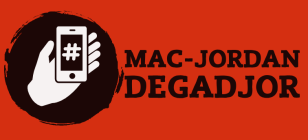-
Sierra Leone becomes the 100th market to receive Starlink, marking a crucial step forward in achieving the goal of universal connectivity across the nation. The country’s Chief Minister, David Monina Sengeh, had previously announced in June 2023 that the National Communications Authority (NATCA) granted a license to Starlink after...
-
The growth of on-demand delivery in Nigeria has been fueled by rising smartphone and internet penetration, improved digital payments infrastructure, and evolving consumer preferences. With traffic congestion a persistent challenge in major urban centres, the convenience of having food and other goods delivered has become increasingly appealing to Nigerian...
-
Meet Samori Gambrah, the Global Brand Director for Captain Morgan, a Ghanaian American-born individual who takes great pride in his diverse cultural heritage. Besides his successful career in brand management, he considers his most significant role to be a devoted father to his two sons, Samori II and Hendrix,...
-
In the heart of Sierra Leone's financial challenge, EziPay emerged as a transformative force. With traditional banking out of reach for many, EziPay harnessed mobile technology, uniting the unbanked. From remote villages to bustling cities, it bestowed the power of financial services to handheld devices, rewriting the narrative of...
-
Lightspeed Ventures, a leading global venture capital firm with a strong track record of investing in disruptive startups, recognized the immense potential of Berry Health's unique healthcare platform. With their expertise in identifying promising ventures, Lightspeed Ventures strategically invested $1.6 million in Berry Health during its pre-seed funding round....
-
Today, the Google for Startups Black Founders Fund announces the selection of 25 African startups. Notably, 72% of these startups are led or co-founded by women, showcasing a strong representation of female leadership. The selected startups demonstrate diversity not only in their leadership composition but also in their geographical...
-
Partech Africa, the VC fund dedicated to technology startups in Africa, has issued its annual report on Africa Tech Venture Capital. The report, which aims to provide a practical picture of the state of the ecosystem, revealed that despite the global VC downturn, the African tech ecosystem grew faster...
-
Through their agricultural crowdfunding platform, GrowForMe allows farmers to expand their farming operations and investors to earn returns through microloans....
-
Fintech continues to be the dominant industry within the ecosystem, with the top investment destinations on the continent being Nigeria, Egypt, South Africa, and Kenya. The thriving African startup market is well-positioned to become a pillar of the continent’s digital economy, fostering local innovation through relevant solutions to societal...





















